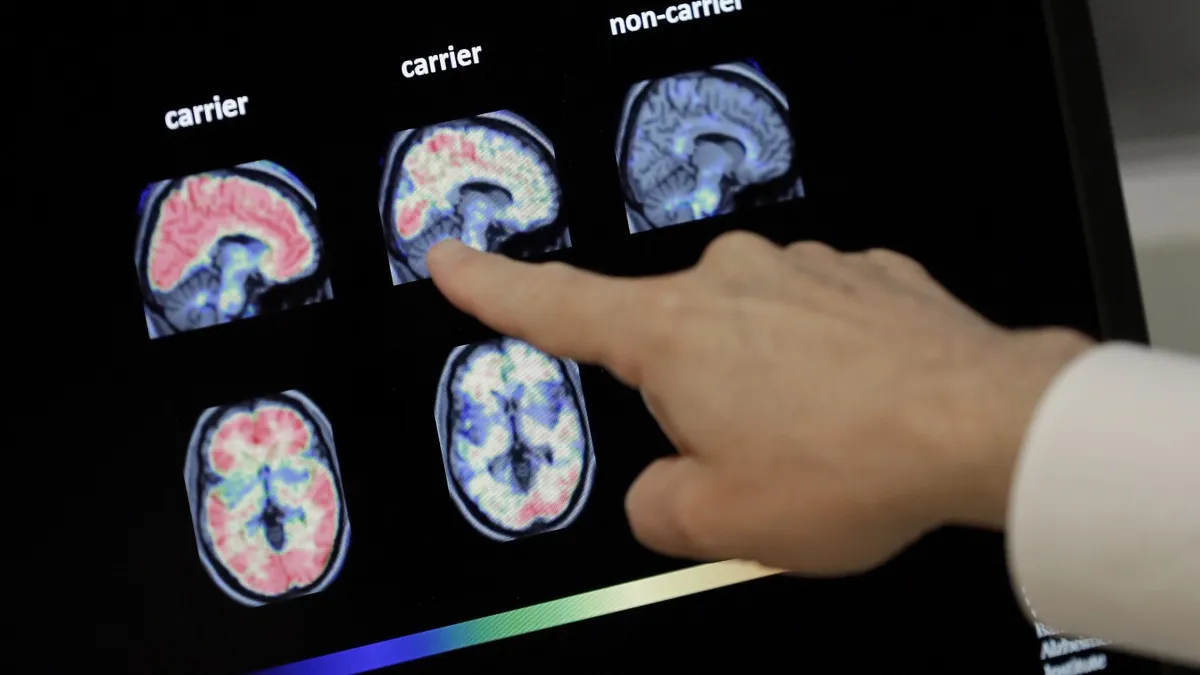
Recent research suggests that a vaccine designed to combat shingles could also play a role in reducing the risk of dementia. A study published in the journal Nature indicates that shingles vaccination can decrease the likelihood of older adults developing dementia by 20% over a seven-year period. This finding highlights the growing understanding of the factors that influence brain health as we age.
Lead researcher Dr. Pascal Geldsetzer from Stanford University describes the results as a “very robust finding.” Notably, the study indicates that women benefit more from the shingles vaccine, which is particularly important given their higher risk of developing dementia. The research tracked individuals in Wales who received the first-generation shingles vaccine over a decade ago, focusing on those around 80 years old at the time of vaccination.
As Americans aged 50 and older are encouraged to receive the more effective second-generation vaccine, the new findings provide additional motivation for individuals to consider getting vaccinated, according to Dr. Maria Nagel from the University of Colorado Anschutz Medical Campus. She emphasizes that the shingles virus is a known risk factor for dementia, and vaccination could serve as an effective intervention.
Shingles is caused by the reactivation of the chickenpox virus, which remains dormant in the body after an individual recovers from chickenpox. According to the Centers for Disease Control and Prevention (CDC), approximately 1 in 3 Americans will experience shingles in their lifetime. While most recover, shingles can lead to severe complications, including vision loss if it infects the eye and chronic nerve pain following the rash.
Research has long indicated a connection between certain viruses, including those in the herpes family like the chickenpox virus, and the development of dementia. A previous study from Boston’s Brigham and Women’s Hospital found that a shingles episode could increase dementia risk by 20%. The inflammation caused by the virus can harm various organs, including the brain, while also potentially leading to blood flow issues that contribute to strokes and dementia.
Determining whether shingles vaccines specifically protect against dementia has been challenging, as vaccinated adults often maintain other brain-healthy habits such as regular exercise and healthy eating. To address this, Dr. Geldsetzer utilized a natural experiment in Wales, assessing seniors who were just eligible for the shingles vaccine versus those who just missed the cutoff. This approach mimicked a randomized study, allowing researchers to analyze over 280,000 medical records and find evidence that vaccination does indeed offer some protection against dementia.
At the time, the first-generation vaccine, Zostavax, was administered. The next crucial step is to investigate whether the current vaccine, Shingrix, also provides similar benefits, with some recent research suggesting it might. Vaccine manufacturer GSK has announced a collaboration with UK health officials to monitor the cognitive health of seniors receiving vaccinations.
Shingrix is administered as a two-dose vaccine, with the CDC recommending it for individuals starting at age 50. It is also advised for younger adults with specific immune-compromising conditions, including those who previously received the first-generation shingles vaccine. Despite the clear recommendations, fewer than 40% of eligible Americans have been vaccinated.
Common side effects of the shingles vaccine may include injection-site pain, fever, and flu-like symptoms. The CDC advises individuals currently battling other viruses, such as the flu or COVID-19, to postpone their shingles vaccination until they have recovered.
While no proven method exists to prevent dementia entirely, healthcare professionals recommend several commonsense strategies to lower the risk. Staying socially and cognitively active, along with managing high blood pressure and, for those with diabetes, controlling blood sugar levels, are crucial steps that can contribute to better cognitive health.
The implications of this research are significant, especially as the incidence of dementia continues to rise in an aging population. The findings underscore the importance of vaccination not just for preventing shingles but also for potentially protecting brain health.